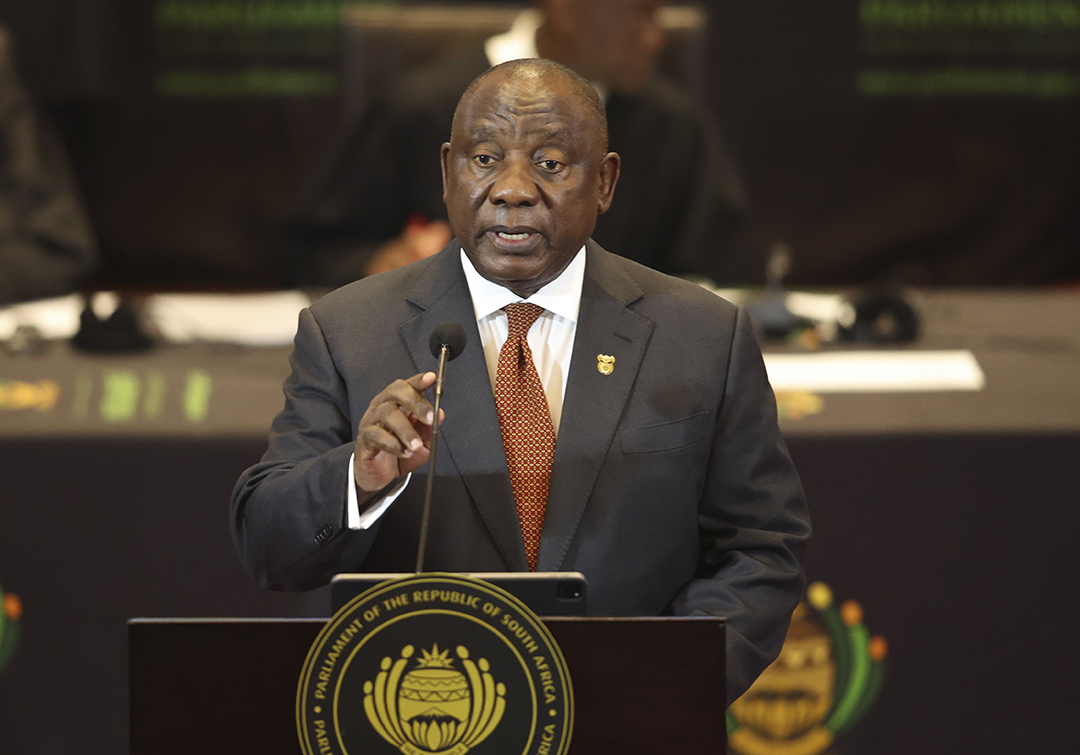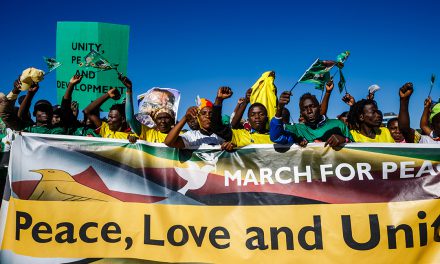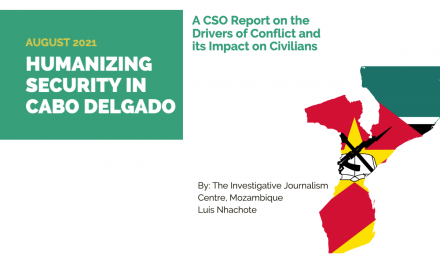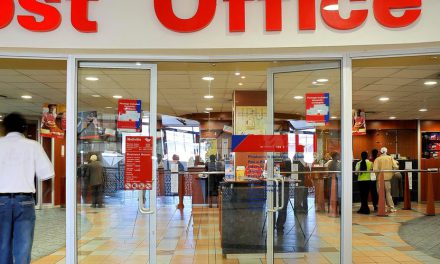President Cyril Ramaphosa’s latest State of the Nation Address (SONA), on 9 February 2023, was memorable because it was delivered in a decisive and clear, almost authoritative manner. The president struck a useful combination of being emphatic and empathetic. He was emphatic that no one should be left behind and empathetic towards the fact that we are living within a complex set of crises.
We start with the good. The president focused on logistics and investing in building and maintaining the nation’s transportation infrastructure. This investment is necessary and if delivered upon, it will improve service delivery and facilitate economic development. The address also told a promising story on the completion of the spectrum auction which will effectively reduce the cost of data. Ramaphosa highlighted the importance of expanding these initiatives in rural areas, helping reduce regional inequality in South Africa.

South African President Cyril Ramaphosa delivers his speech during the 2023 state-of-the-nation address (SONA) at the Cape Town City Hall in Cape Town on February 9, 2023. Photo by ESA ALEXANDER/AFP
That said, while the president’s emphasis on fixing roads, rail, ports, energy and water provision through greater funding is welcome, sustainable investment is equally dependent on governance – transparency, accountability and the rule of law.
The statement that the government will “use data-driven methods in a more sophisticated way to identify and target crime hotspots” was encouraging. The robust implementation of this across our law enforcement system can go a long way to making South Africans feel safer.
On each of these measures, the president struck the right tone. Follow through across spheres of government is essential to turn these policies, and others like professionalisation of the public service and eliminating corruption, into tangible gains for South Africans. Not seeing them through is not a red tape problem; it is a problem of zero political will. With that, we move on to the less welcome aspects of SONA.
Good Governance Africa’s SONA preview deliberately emphasized three issues: the energy crisis, local government and rising political instability. As Ramaphosa indicated, without a consistent and robust energy supply, South Africa cannot eliminate poverty, reduce unemployment, and tackle inequality. Local government, meanwhile, is the first point of access which citizens have to governance in South Africa. Political instability hampers any government’s ability to effectively fulfil its duties, harming citizens.
The South African Reserve Bank (SARB) recently estimated that load shedding costs the economy an estimated R900 million per day. This macroeconomic estimate indicates the sheer scale of harm which irregular energy supply is having on small businesses, local communities, schools and families. Moreover, the economic damage caused by load shedding which has left many unemployed and out of business happens as social partners have failed to forge a comprehensive and workable social compact to rebuild the economy and enable sustainable employment opportunities.
The two “headline solutions” the president provided to the energy crisis were an immediate declaration of a national state of disaster on the energy crisis, and the creation of a Minister of Electricity cabinet post housed within the Presidency.
Our reaction to these initiatives is mixed. Insulating hospitals and water treatment plants from load-shedding is an unequivocal positive. We were also pleased to hear Ramaphosa specifically mention that the Auditor-General will continuously monitor expenditures. This will help prevent the distribution of corrupt contracts, a commonplace occurrence during the Covid-19 state of disaster.
However, it appears that not all lessons were learned from the Covid-19 state of disaster experience. There was little indication that the government will regularly engage key external stakeholders on the regulations forming part of the disaster management plan; no acknowledgement that this can only be a temporary and not a permanent solution to the crisis; and no timeframe provided for how long the state of disaster will last. We call on the government to provide clarity on the accountability mechanisms it will implement as part of its disaster management strategy.
It is also the case that Ramaphosa’s announcement of a new cabinet post focusing on electricity would have been more convincing had he identified and motivated for the person who he would install. However, his cabinet reshuffle delays have left South Africans in the dark about the chain of responsibility.
The energy crisis has been publicly acknowledged at the highest levels of government and the African National Congress (ANC) for over 15 years now. In that time, the ANC has maintained unified control of government and sizeable parliamentary majorities but load-shedding continues unabated.
As the president noted, the current state of local government in South Africa is unacceptable: “163 (municipalities) out of 257, are dysfunctional or in distress due to poor governance, ineffective and sometimes corrupt financial and administrative management and poor service delivery”. In prescribing a solution, Ramaphosa’s address was more striking for what it did not say than for what it did. Our preview specifically called on the president to update the nation on the implementation of the “district development model” (DDM). Following its much-heralded launch in June 2019, annual SONAs had only fleetingly mentioned this.
Last week, Ramaphosa took this a step further by not mentioning the DDM at all. Considering that his government once lauded the DDM as a “game changer” that would transform local governance in South Africa, its annual underplaying, and now absence, within the president’s most important speech raises questions. For our part, Good Governance Africa is committed to providing South Africans with a clear picture of the state of local governance. In particular, we will publish an updated version of our Governance Performance Index (GPI) following the release of the most recent census results.
What was also concerning in the SONA proceedings was the disruptive behaviour of certain political parties, most notably the Economic Freedom Fighters (EFF). Such events tarnish South Africa’s image on the world stage. Citizens are also harmed when disruptions by the same parties cause the repeated breakdown of weak coalitions in municipalities across the country, impeding service delivery. Nor are the Democratic Alliance (DA) innocent bystanders in this instability.
On several occasions now at the municipal council level, the DA has opportunistically relied on votes from the same disruptive forces for the sole purpose of keeping the ANC out of power – even when the ANC remain the largest represented party. This predictably backfires when the same parties turn on the DA by siding with the ANC in votes of no confidence, exacerbating chaos and acrimony.
The problem is that South Africa lacks a dedicated regulatory framework dictating how coalitions should form and function. This incentivises short-term thinking and aids the rise of disruptive “kingmaker” political parties.
To that end, we reiterate our call for Ramaphosa and his cabinet to convene a special independent panel assessing the causes of coalition breakdown and the subsequent governance impact. This panel’s work can then inform the creation of a subsequent framework. It will then fall on civic society, business, and most importantly, citizens, to hold political parties to this more responsible standard.






